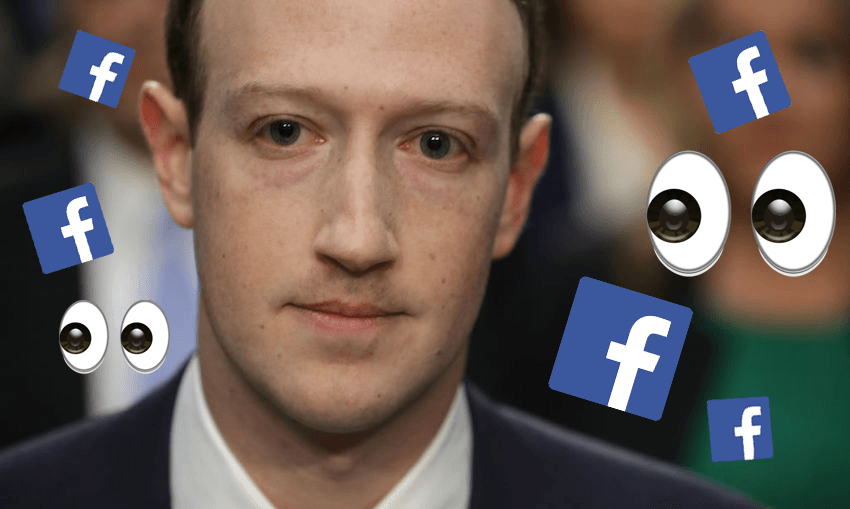Facebook’s threat to pull out of news in Australia is the latest salvo in an increasingly bitter battle over who owns the news – and who should fund its production, writes former MediaWorks news boss Hal Crawford from Sydney.
The struggle between the Australian government and Facebook and Google over news is surely close to climax: and yes, it is getting so hot and heavy there will be repercussions of some kind for the future of media globally.
Facebook yesterday declared it would prevent news from being posted to its platforms in Australia if draft legislation requiring it to pay news organisations went ahead.
Google is already engaged in an unprecedented publicity campaign against the proposed legislation. Every Google and YouTube user in Australia – ie everyone – is being bombarded by messages about how the new laws threaten the search giant’s “free services”.
While there have been attempts to make platforms pay for news in Europe, nothing comes close to how cunningly the Australian laws have been designed, and how bitterly both digital companies resent the attempted intrusion on their business models.
The question is what the repercussions for New Zealand will be: encouragement for a desperate industry looking for a ready source of cash, or cautionary tale?
Most people think the jury is still out. It isn’t. The regulations have been doomed from the beginning, and Facebook’s sincere threat to throw news off its social networks shows it.
Read more:
Hal Crawford: Why Australia’s plan to make tech giants pay for news won’t work
Why the law is scary for global platforms
Australian consumer watchdog the ACCC has crafted the legislation so that every Australian news organisation has a right to strike a deal with Facebook and Google over what they will pay that organisation for indexing, linking to, and summarising its news content.
There is an underlying assumption that there is more value for Facebook and Google in this relationship, and therefore the mandated payments only flow from platforms to news. The law is a bargaining law: when the parties can’t agree, it appoints an independent arbitrator to choose which of the two camps’ final offers is the fairest.
From that moment, the deal is binding and there are very heavy fines – up to hundreds of millions of dollars – for each breach.
The clever thing about the law is that it leaves all the hard stuff – like trying to put a number on the “indirect value” of news to platforms – to the players themselves, and following that to the arbitrator. By the time the arbitrator reaches a decision, the platform company has bought into the system.
Facebook drops its bombshell
The ACCC unveiled its draft legislation a month ago and the consultation period ended last Friday. Facebook dropped its bomb on Monday.
“Assuming this draft code becomes law, we will reluctantly stop allowing publishers and people in Australia from sharing local and international news on Facebook and Instagram,” wrote Will Easton, who is Facebook’s MD for Australia and New Zealand.
Easton’s statement is well-crafted, and it’s clear what will happen should the legislation go ahead. Facebook is somehow going to change its tech so that news links won’t paste for Australian users.
That’s massive. Many news organisations get a large chunk of their traffic from Facebook referrals. No news pages, no sharing buttons, no casual links from friends and family. At least in the short term this would decimate digital audience in an industry that is already reeling from advertising downturn.
This is the culmination of a series of increasingly aggressive public statements from Facebook claiming that news is not a core part of the social network’s business.
Google goes to the people
Google, having a different business model, has approached things differently. The warnings it is publishing direct to consumers feel exaggerated and play on an implied threat to the “freeness” of search and YouTube. This is not credible. The ploy of using its massive reach to spread alarm among “media civilians” plays into the hands of those who believe Google has too much market power.
Nevertheless, I believe that Google’s position is also sincere, and the vehemence of its campaign testifies to its belief that the new law threatens something fundamental to its business.
This is the essence of the importance of the Australian situation for the rest of the world. In the drama being acted out between the ACCC, news corporations and the platforms, we see exactly how the giants will react when confronted by legislation that threatens the core of what they do: presenting other people’s content to the world.
Campbell Brown, Facebook’s head of global news partnerships, has said she thinks “Australia is an outlier”. If this is meant to calm the farm, it’s not going to work. Governments, regulators and desperate news executives all over the world are looking for ways out of the news market failure. If Australia had found a way to force Facebook and Google to subsidise the news industry, you can bet New Zealand – with its similar competition framework and legal system – would be first in line to use the technique.
Something no longer lost on either of these two world-beating American companies is that what the news media lack in financial heft, they make up for in political influence. No matter how global technology is, governments are elected locally, and laws are made by governments. There are those in the news industry who – like bankrupt aristocrats, drunk, delusional and weeping over a squandered fortune – still know who to call for a favour.
Read more from Hal Crawford on the battle between the American tech giants and Australian news media here.

